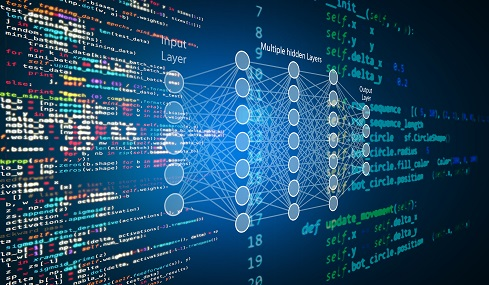The Centre for Social and Cultural Data Science (CSCDS) held their first Data Science Expo on Jan. 21. Among the many speakers presenting on the new and exciting roles that data science will play in the modern world was Aengus Bridgman, a political science PhD candidate at McGill.
Bridgman’s lecture delved into the plethora of political data collected during and after the 2019 Canadian federal election, detailing the importance of data science in the social sciences as well as what characterizes a good data scientist.
A senior political analyst at the Digital Democracy Project, Bridgman began his talk by explaining the emergence of the term ‘data science’ and the role of a data analyst, a title he has only recently adopted.
“What’s really great about the label of data science is there’s all this work that was being done by social scientists, engineers, computer scientists, and […] folks in linguistics, that was kind of using the approaches of data science but didn’t have a nice sexy name attached to it,” Bridgman said.
Bridgman noted that with the new official label, data scientists have been getting more attention from a variety of groups who previously were uninterested in the world of statistics. However, data science is there to direct people towards answers, not provide them outright.
“We can get the best data, we can have massive resources to gather data, to do analysis, we can have a whole research team, and we can still only get partway to an answer,” Bridgman said.
This being said, the statistical information provided by Bridgman’s team on the 2019 Canadian election has shown promising results. He spoke at length about political polarization among Canadians, their susceptibility to misinformation, and what issues they prioritized during the election period.
Though Canada’s political culture is not as starkly polarized as it is in the US, Bridgman’s data showed that public opinions are also turning away from the centre of the political spectrum. Bridgman and his team also found that people were more likely to share information from sites that aligned with their political views.
Collected data have revealed that political polarization results from confirmation bias and the propensity of different groups to misinformation, or at the very least information that stands behind political partisan positions of what they already believe.
Bridgman found that partisans were more likely to read articles about the successes of the party they support. For example, an article by the Journal de Montréal titled “Bloc: le cœur et la raison” [Bloc: The heart and the reason] had most of its shares from members of the Bloc Québécois.
Bridgman explained that usual methods of political analysis such as surveying have fallen short in helping data scientists make sense of the 2019 election results.
“If you ask Canadians what issue [they] most care about, what do you think they say?” Bridgman said. “The economy. They always say the economy.”
By dividing the population into three groups—the public, broadcast media, and party candidates—Bridgman’s team got a better grasp on the similarities between groups, allowing them to measure how the political opinions of people differed.
Immigration was a topic mostly avoided by politicians, although it was widely covered by broadcast media. Similar results were shown for discussions on foreign affairs.
On the other hand, all three groups were relatively interested in environmental policies. Ethics were one of the lowest-mentioned topics by politicians and the broadcast media but were a big concern for the public. These results demonstrated to Bridgman that what politicians considered important did not always align with the views of the Canadian public.
Combining statistics, computer science, and domain-specific knowledge, data science is a promising new field in which historians, policymakers, and others in the humanities can find their place. As Bridgman’s work reveals, engaging with data in any field wields the power to observe important trends and make discoveries.









